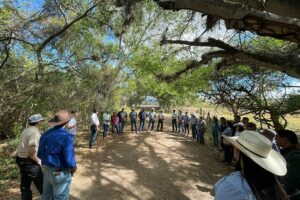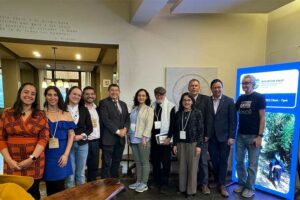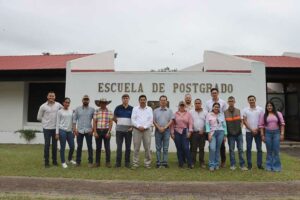Researchers from the KoLFACI Coffee project strengthen skills during annual meeting
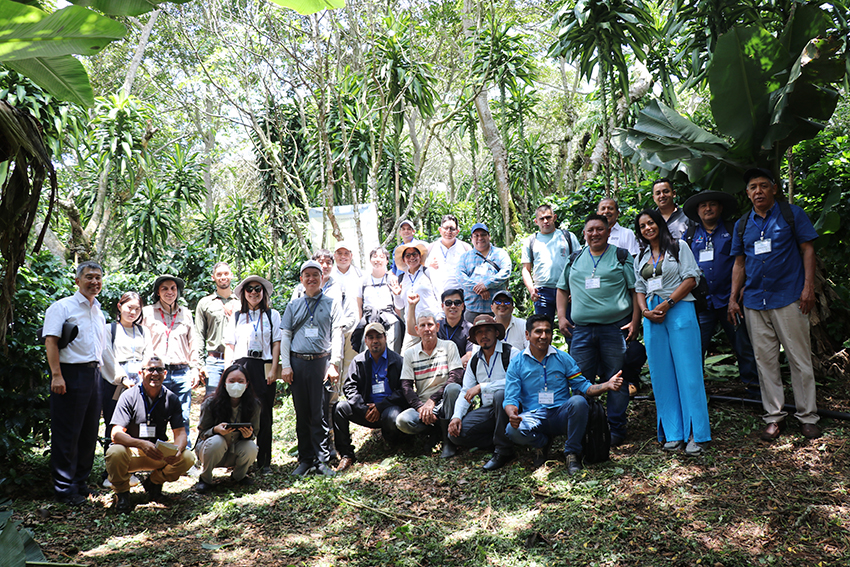
- Participating countries of the project met with KoLFACI representatives and paved the way for the start of the second phase.
September 19, 2023. Researchers from the 8 countries participating in the project "Participatory Research on Coffee Varieties and Pruning Methods, with Fertilization Programs to Increase the Production of Small Coffee Farmers," coordinated by CATIE and funded by the Korean Cooperation for Food and Agriculture in Latin America (KoLFACI), gathered in Costa Rica for their annual meeting.
The meeting had as its objectives the sharing of research findings with Korean donors, who participated in technical presentations and field trips, where they were able to hear about the results achieved by each country during the three years of the project implementation and prepare the groundwork for the start of a second phase of regional cooperation.
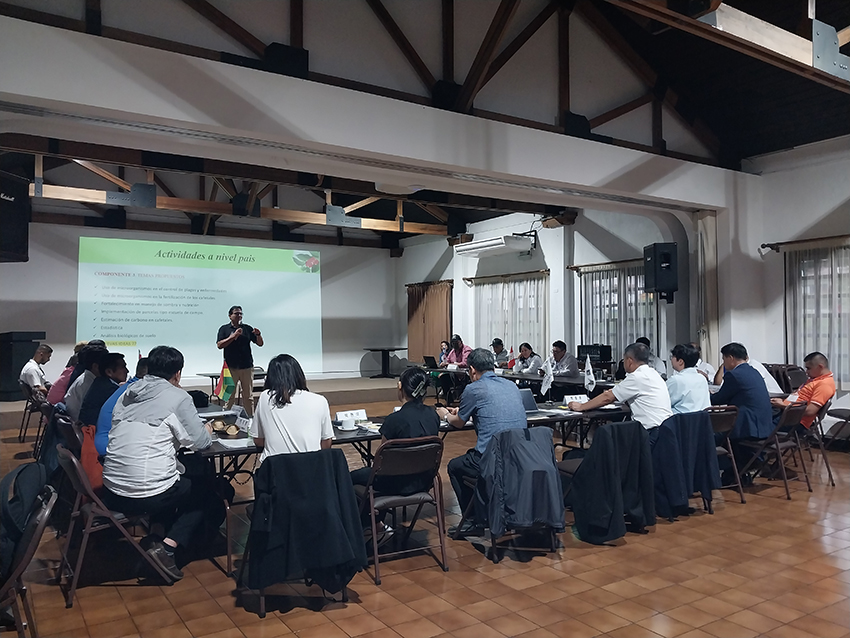
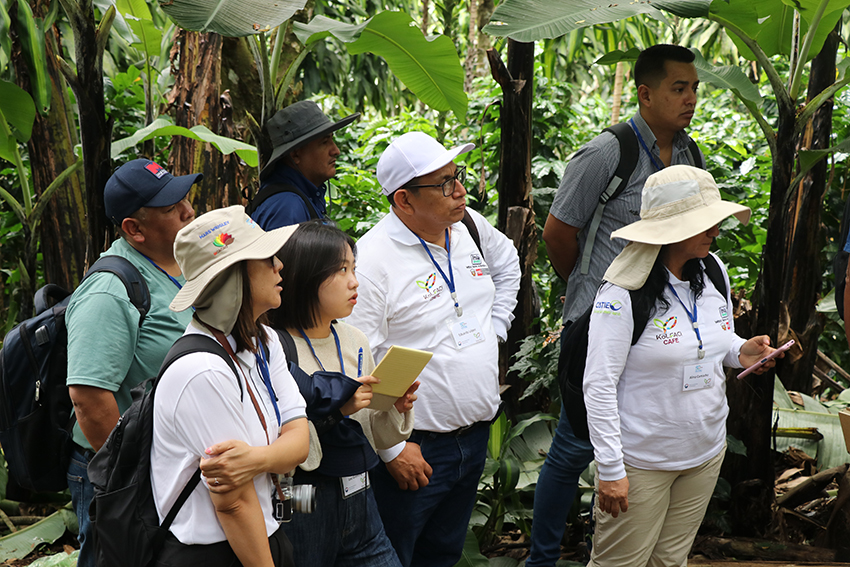
The meeting took place from September 4th to 8th and received support from ICAFE (Costa Rican Coffee Institute), a partner institution for project implementation in the country. ICAFE not only hosted the meetings and workshops but also played a strategic role in field trips to farms where different pruning techniques and varieties are being implemented and evaluated. These insights were shared with the other participating countries.
The project aims to develop technologies that incorporate various pruning methods in research plots, including traditional and improved coffee varieties. Among the goals is the strengthening of technical capacities of researchers in each country and the dissemination of these technologies through various events involving technicians and producers, as well as the creation of outreach materials.
The participating countries and institutions were Bolivia (National Institute of Agricultural and Forestry Innovation-INIAF); Peru (National Institute of Agrarian Innovation-INIA); Panama (Ministry of Agricultural Development-MIDA); Costa Rica (Costa Rican Coffee Institute-ICAFE); Nicaragua (Nicaraguan Institute of Agricultural Technology-INTA); Guatemala (Institute of Agricultural Science and Technology-ICTA); El Salvador (National Center for Agricultural and Forestry Technology Enrique Álvarez Córdova-CENTA); and Honduras (Department of Agricultural Science and Technology-SAG-DICTA and the Honduran Coffee Institute-IHCAFE).
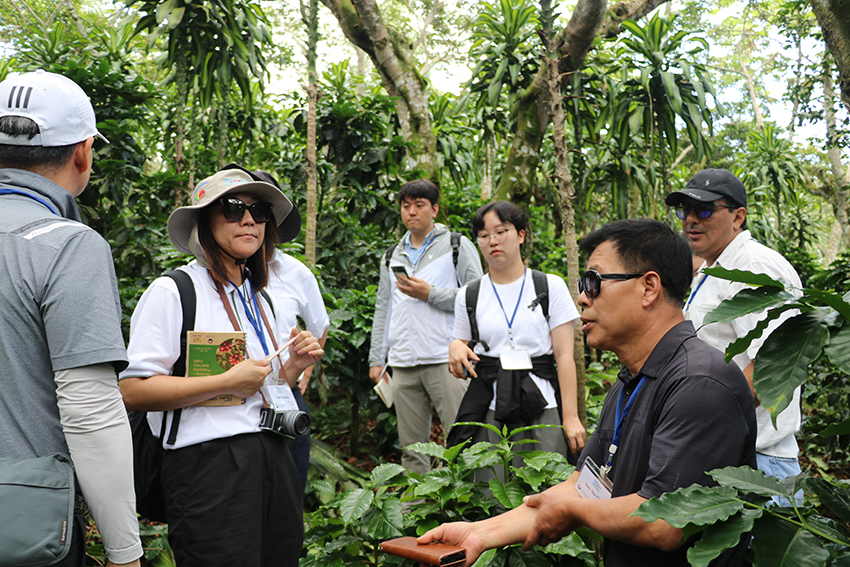
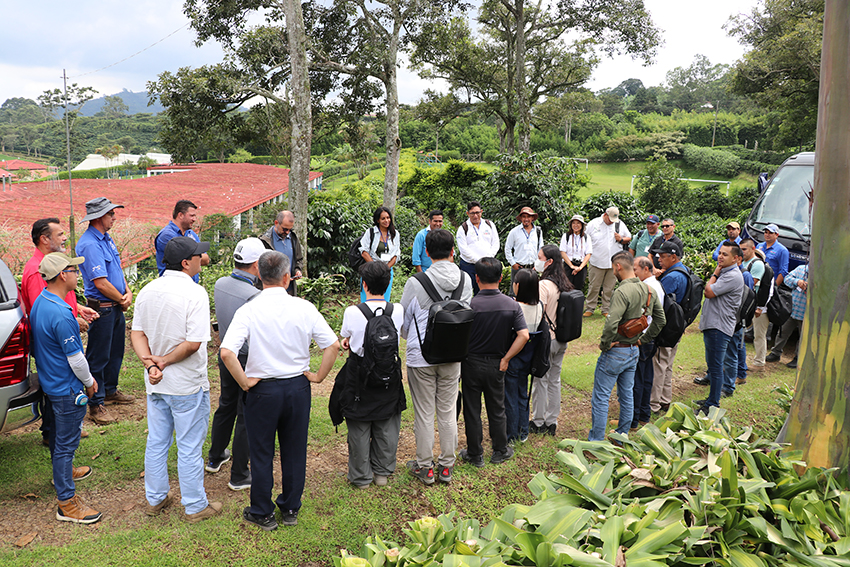
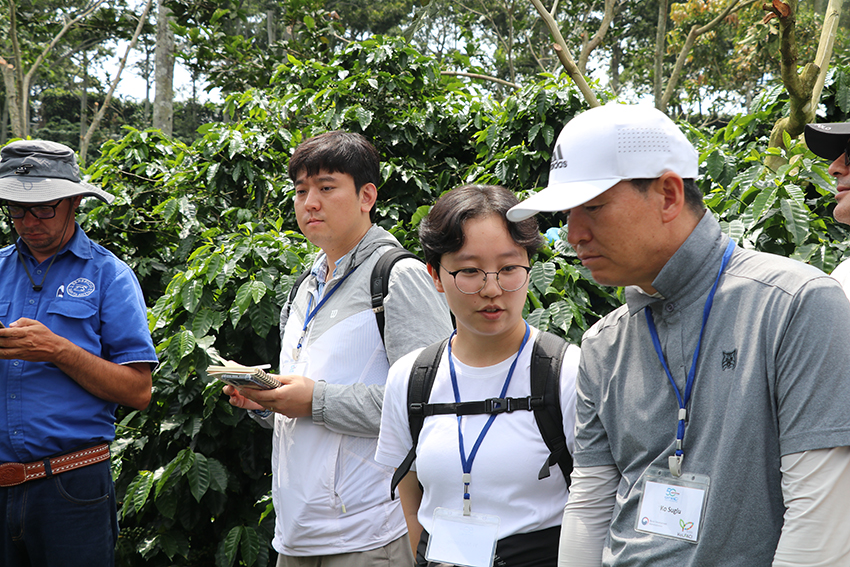
Work Agenda
During the visit, the countries presented some of the project's KoLFACI results to the Korean representatives, who wanted to see firsthand the fruits of the work carried out over the past three years.
In addition, they visited two coffee farms where pruning trials implemented by the project are conducted to observe the results in the field. They visited Las Martinas farm in San Ramón and the Santa Anita Estate Coffee of Agrícola El Cántaro in Naranjo.
The researchers also toured the research laboratories of ICAFE, which are available to national producers for coffee analysis, disease and pest control, soil quality assessment, water analysis, genetic content, and other factors affecting their work.
The Experience
Alina Camacho Villalobos from the National Institute of Agrarian Innovation of Peru mentioned that the execution of the KoLFACI project has brought them closer to small producers in their country.
"Thanks to CATIE's guidance, we have shared the topic of pruning, as this technique was not common in our country," said Camacho. "The novelty of this project is that we have developed technologies that allow producers to apply them on their farms, which has strengthened the relationship between them and us as researchers," also stated Lenin Pineda of the Department of Agricultural Science and Technology of Honduras.
Eloy Álvarez Choque, a researcher at the National Institute of Agricultural and Forestry Innovation of Bolivia, mentioned that he would love to integrate some of the knowledge acquired during the field trips to coffee farms in Costa Rica into his country. "Organic management, accessions, and the types of pruning done in Costa Rica are not as developed in Bolivia," Álvarez said.
Finally, Victor Vargas, head of regional units at ICAFE and the focal point of the KoLFACI project on behalf of that institution, commented that "CATIE is like a sister institution, and we are very satisfied with these days of hard work alongside the countries and the Korean representatives."
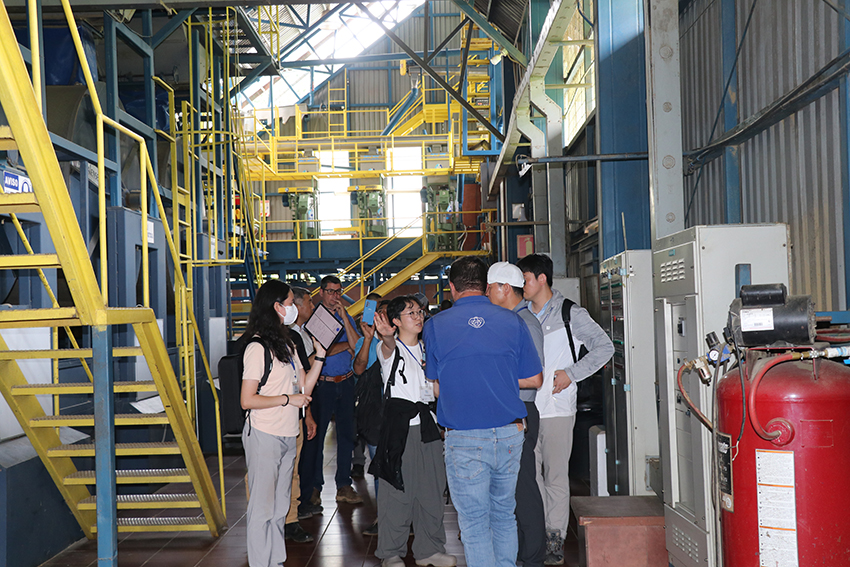

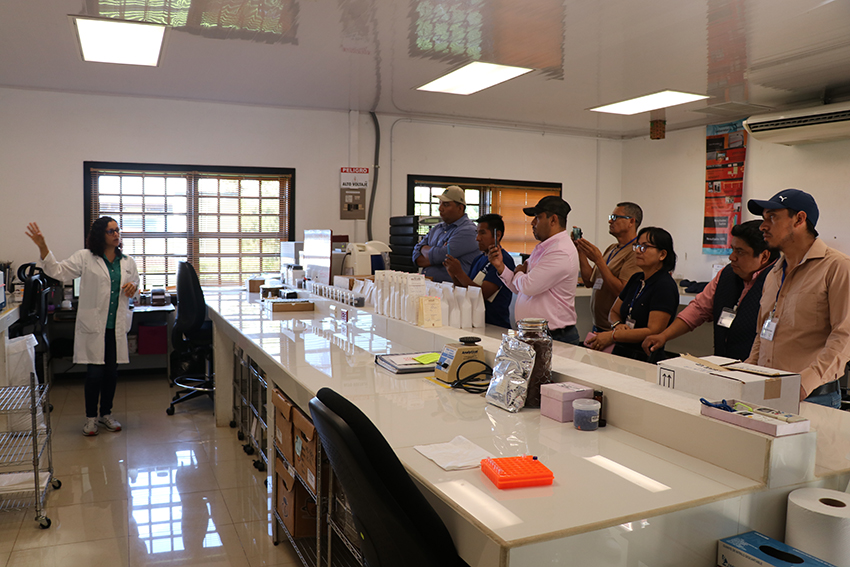
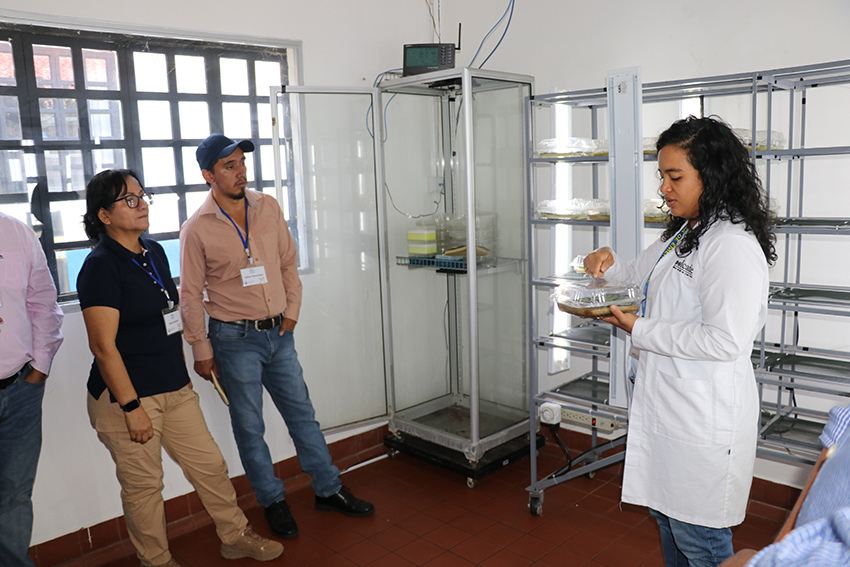
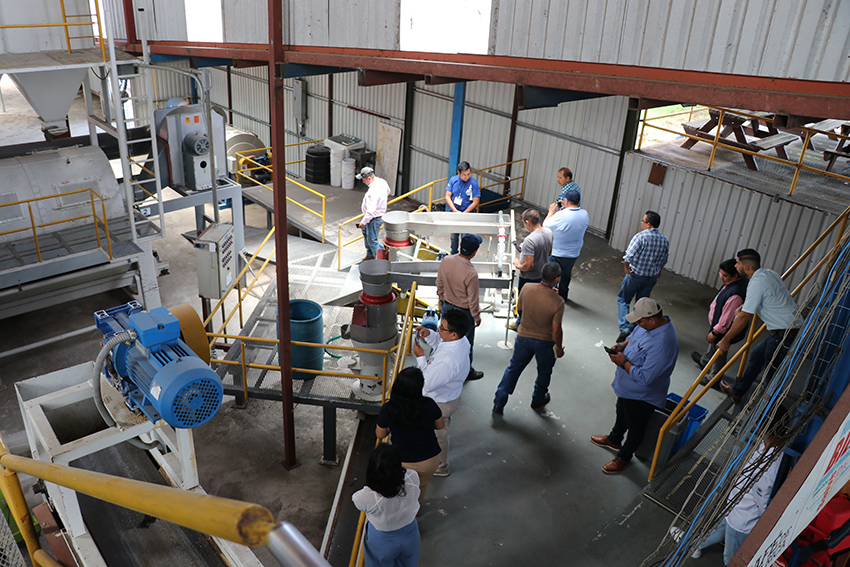
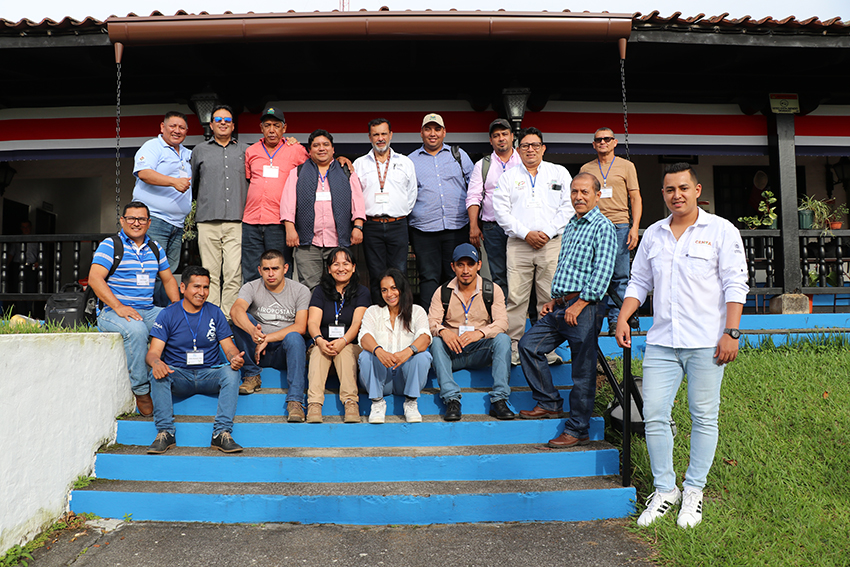
Written by:
Esteban Rodríguez Zamora
Communicator
Information Technology and Communication
CATIE
esteban.rodriguez@catie.ac.cr

